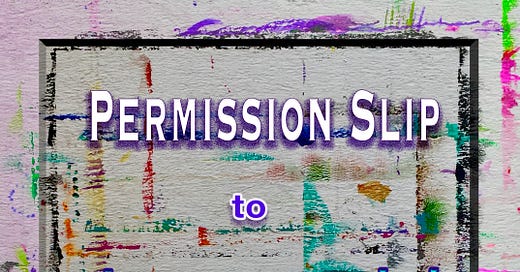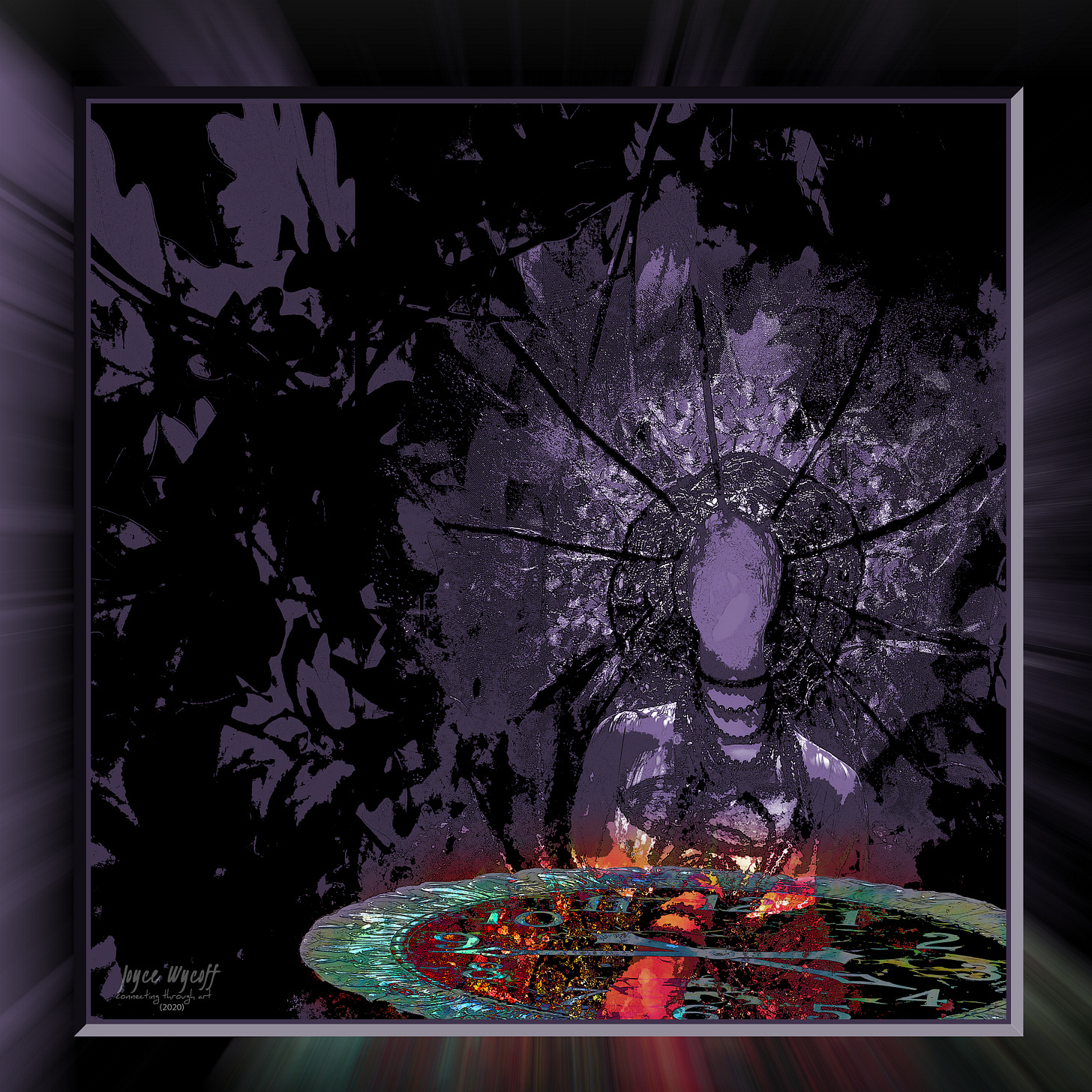In a conversation that meandered through the valleys and switchbacks of what stops us from declaring peace to what it would take to change the mind of a cult, my friend mentioned that she once heard a lecturer give the audience a permission slip to change their minds.
Not that I think Substack readers need such a permission slip, but it seemed to be an easy step to take, so consider it done and here it is, should it be needed.
That was intended to be a light introduction to the hard question of …
HOW do we change minds, ours or others?
Deciding this was a post I wanted to write, I went looking for a time when I deliberately changed my mind, and how I did it. Should have been easy since I’ve made a lot of decisions over my many years, but I kept circling back to the thought …
… did I change my mind? … or did my mind change me?
Sometimes it feels more like I doze off … like an open book at a breezy beach … pages turn and when I wake, I’m at a different place in the story. Or to keep metaphoring, it often seems like, during sleep, my mind has sifted and sorted through all the debris and swept the sidewalk for a new day. I just need to step onto the path and proceed.
But, surely, there was a time when I consciously and deliberately changed my mind, so I kept looking and remembered a time when a friend and I were visiting San Francisco. Almost four years ago today, I wrote about it in a blog post …
“A friend and I were spending a few days in San Francisco. She is something of a fashionista and wanted to see the Gaultier show at the de Young Museum. I expected to spend an hour or so being bored in the service of friendship. I did not expect to be completely overwhelmed by the sensational beauty and creativity of both Gaultier’s work and the show itself.
Nor did I expect to take more than 500 photos nor make at least half a dozen pieces of art from those photos, one of which has landed in my permanent collection and was later invited into an online show.
In an interview, Gaultier talked about his resistance to putting 35 years of his work on view: "A museum can seem dead, like a funeral. I don't feel dead yet. I wanted something to be very, very alive.”
His show was definitely alive. I expected to walk through rooms of pretty, but odd, dresses. Instead I was surrounded by life-sized mannequins wearing outsized, and often outrageous, costumes … several of them talking to me! Even Gaultier himself was there telling us about his life and his art. The projection technology was new to me and disorienting because, while I knew they were mannequins, their features looked as if they were actually speaking.
One reviewer reported: "He talks. He blinks. He laughs. Standing against a panel of blue light with an army of similarly dressed and animated figures, he invites people into a fashion display unlike any other. From the Sidewalk to the Catwalk feels like a party. It's loud and bustling, full of movement and life.”
That show blasted an opening in my conception of art and delivered a transformative lesson: insights come from unexpected places … places where we’ve never been before, either physically, mentally, spiritually or emotionally. Overcoming resistance and doing something I didn’t particularly want to do expanded me, changed the way I look at the world and my definition of art … and myself.
However, that memory still doesn’t answer my question of how do we change our minds? Going to that show changed my mind; I didn’t seem to have a lot to do with it. It also brings up the question of even wanting to change my mind. If I could change my mind right now about something, what would that be?
Is there a belief, value or mindset that’s not serving me? Surely there is … probably plenty. The clock is ticking … okay … here’s one: I believe that I have a leaky memory. Since that belief reflects current reality, I’m not sure how I would go about changing it … or even if I want to improve it badly enough to do the work it would take to change it.
Perhaps that’s part of the issue about changing our minds. Using our current mindset, it’s difficult to identify mind changes we’d like to make. We have to experience something that sparks an insight toward change, or feel a need to change enough that we take action. We have to be pushed or pulled into change. Which calls into question the speaker who gave people a permission slip to change their minds … would that have any effect at all?
What about you? Have you deliberately changed your mind about something … and, if so how did you do it? What makes you change your mind? Would love to hear your ideas.
Just a reminder that all weekly posts are always free, however, if you’d like to help offset expenses of this newsletter and you find this or other posts worthwhile, you can always …







The short answer, Joyce, is "naw" Permission slips do not trigger the change. The brain scientists are agreeing on this point, as well as every writer of every book and movie--what blows you out of that comfort zone is the experience, the moment, the thing that tells you two points, usually in this order: "I did not see it coming" and "There's no going back--there's only the unknown ahead."
Art, design, fashion, music, books, movies...new and novel experiences change our minds. Planned and unplanned. Mapped out and unmapped. When I went to San Francisco in 2018 to see the Robert Rauschenberg career retrospective, I said to the friend I went with, "This exhibit is going to change my life."